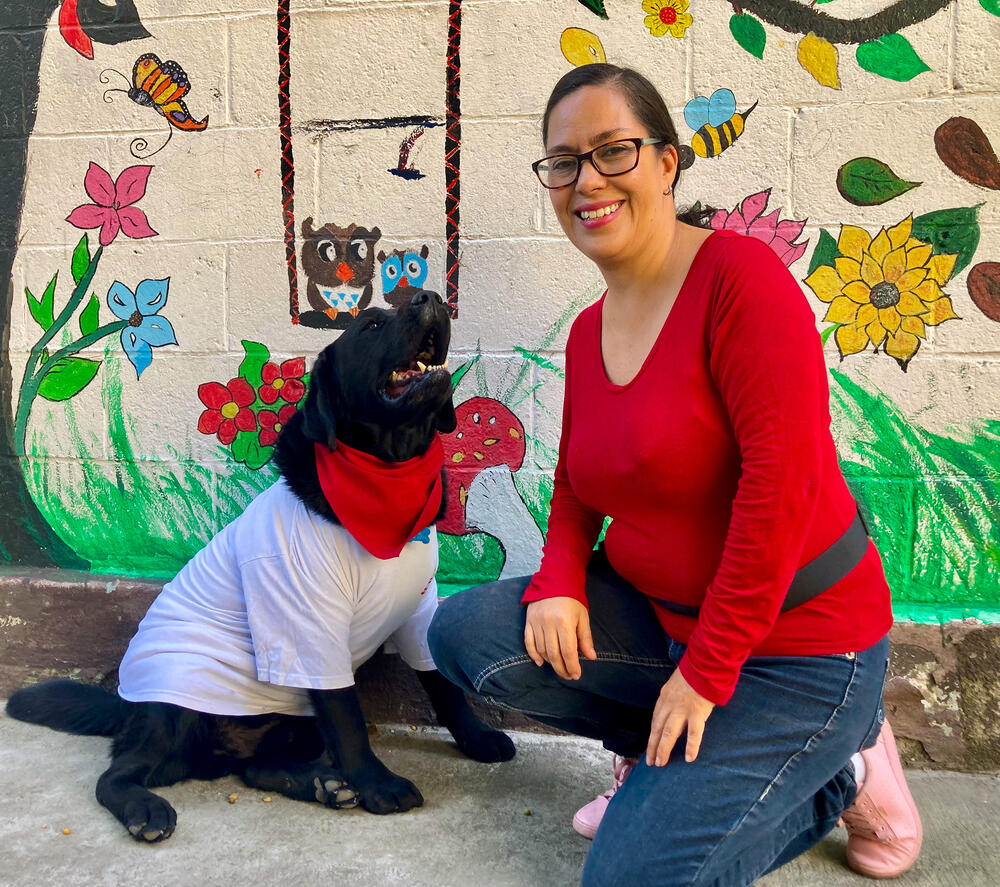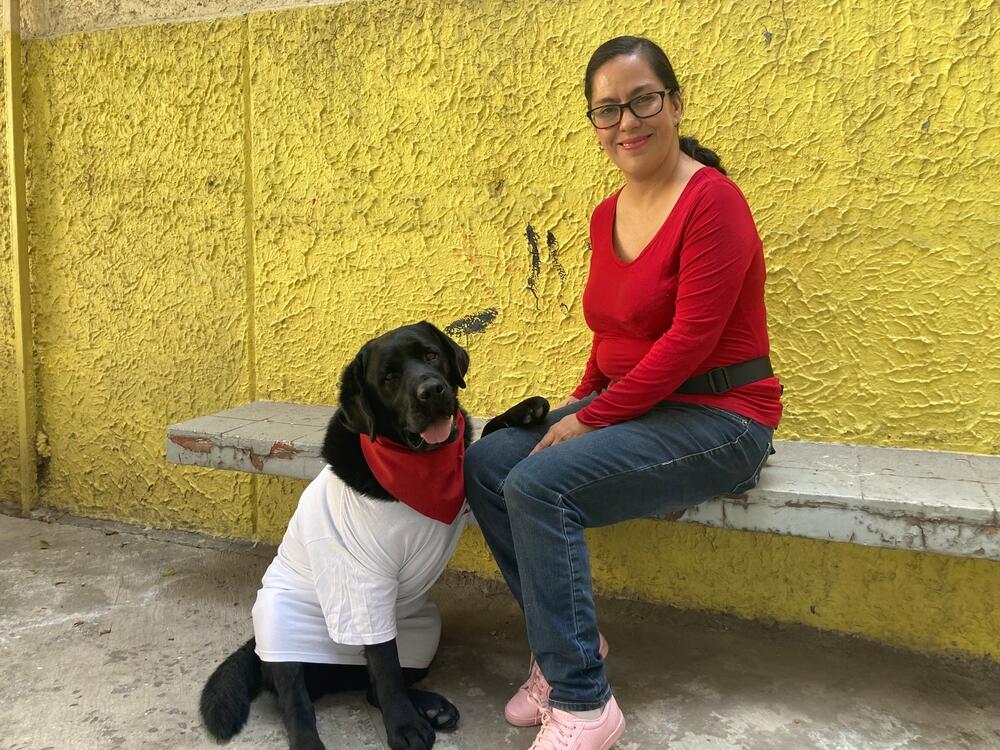Mental health: Meet the therapy dog helping treat survivors of torture
In Mexico City, psychologist Alicia de la Rosa works to support vulnerable patients through vital therapy sessions. To do this, she relies on the invaluable input of her partner: a four-year-old Labrador retriever named Onnie.
Alicia is a specialist in animal-assisted psychotherapy. Together, she and Onnie provide mental health support to victims of torture and extreme violence at the city’s Comprehensive Care Centre run by Médecins Sans Frontières / Doctors Without Borders (MSF).
Here, since 2017, a team of MSF doctors, psychologists, social workers, psychiatrists and physiotherapists provide comprehensive and often long-term care for migrants and Mexicans who have experienced horrific journeys or extreme violence in their country of origin.
“Working with Onnie gives them a chance to break down barriers so that they can open up to therapists and feel confident to talk about the difficult situations they have experienced”
Onnie is trained to help provide therapeutic support to children, adolescents, the elderly, and people living with disabilities.
The service that patients might receive from Onnie and Alicia is just one component of the psychosocial care available at the centre.
The value of a therapy dog
“Some of the people who have experienced traumatic situations of extreme violence or torture find it difficult to express their emotions and find trust again in others and in their environment,” says Alicia.
“Working with Onnie gives them a chance to break down barriers so that they can open up to therapists and feel confident to talk about the difficult situations they have experienced.
“The patients at this centre have been victims of kidnappings, torture, forced prostitution, threats, mutilation, sexual violence, forced recruitment by organized crime gangs, or have even witnessed the murder of a family member.”
Therapy dogs are trained from a very young age. Onnie began his training as a puppy when he was exposed to different sound stimuli, textures, environments, people, and objects.
Then, when he turned one year old, he began his more specific training to become a therapy dog.
That training was accompanied by basic obedience classes to learn behaviours including how to sit, lie down, turn, give his paw, jump, and move so that patients with motor difficulties can brush or pet him.
Animal-assisted psychotherapy also helps people express their emotions.
“There are people with complex trauma who cannot say ‘Today I am very sad,’ but can say ‘Today Onnie looks sad,’” explains Alicia.
“That allows psychotherapists to know their mood. Patients also transfer the trust they feel for the dog to the therapist. They think, ‘If Onnie wants to be with Alicia, then it means that I can trust her.’”
Canine care in a crisis
Onnie currently provides support to many patients at the centre, including children, young adults, and families who fled their home countries.
The patients can show symptoms or acute mental health disorders such as post-traumatic stress disorder, anxiety or flashbacks of traumatic events and extreme violence they experienced at the hands of gangs, criminal groups and others.
“Onnie was with [the patient] during one crisis. He began to put pressure on her lap with his paws and lick her so that she would be aware of her body in that moment.”
Essential mental health care, thanks to your support
The generosity of people like you means expert MSF medical teams can deliver expert mental health care to the people most in need across the world.
“Onnie is helping two patients talk about the traumatic experiences they were subjected to,” says Alicia.
“This helps them redefine their experiences and learn to name their emotions and feelings.”
One of these patients is a young man who usually suppresses painful memories and withdraws into himself. When he remembers the traumatic experiences, he is unable to speak or think. That's when Onnie springs into action.
“Together they do different activities and exercises that make him feel more relaxed, not threatened, and able to talk about what triggers those traumatic memories.”
Another patient has trouble discerning between her thoughts and reality. She has been hospitalized several times after self-harming.
“We are working with her to try to get her to anticipate when her anxiety symptoms and recurring thoughts start,” explains Alicia.
“Onnie was with her during one crisis. He began to put pressure on her lap with his paws and lick her so that she would be aware of her body in that moment. Today the patient’s symptoms have improved quite a lot and she has been three weeks without any crises.”
At the beginning of a patient’s treatment, the medical and psychology teams work with them to create therapeutic objectives. Once these objectives are met, Onnie’s job is complete.
“Patients are told in advance that the visits with Onnie will occur between certain dates so they are prepared in advance for the animal-assisted therapy will end,” says Alicia.
“This is because a patient bonds with the dogs and it is important to close this bond of affection in a positive way.”
Onnie and Alicia have been part of MSF’s comprehensive care team for two years.
“We are very happy,” sums up Alicia.
“We have managed – together with everyone involved in the treatment of the survivors – to help our patients recover.
“Seeing an improvement in the quality of life of these people who have suffered so much and who arrive at the centre so traumatised is something that gives us great satisfaction.”
MSF and mental health
Worldwide, around one in four people will suffer from a mental health problem during their lifetime, yet roughly 60 percent will not seek help.
These figures dramatically increase when factors such as violence, persecution, the need to flee, disasters or a lack of access to healthcare are involved.


